Resources
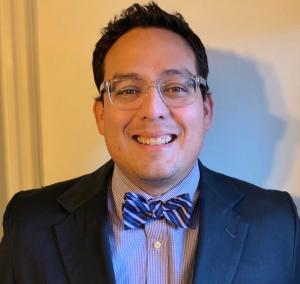
When I was a pastor in New York, I worked with many people who were immigrants. In fact, New York City is a city of immigrants. For many, the drastic changes in the neighborhoods and in the metropolitan area are disorienting. The sources vary, but as many as 800 languages are spoken in Queens alone.[i] The whole world is in New York, and this is one reason New York is described as the “Capital of the World.” The most cosmopolitan urban jungle attracts business from all over the world. Many others come looking for work.I met a Caucasian man from Alabama there. He said he moved to New York because of an ad in the paper about doing roof work, and the next day he had twenty phone calls asking him to do roofing jobs. In an instant, he was already earning a living.For many who have been poor and lived in poverty, New York is a place of opportunity. I lived on the North Shore of Staten Island. The North Shore has a beautiful view of New York Harbor, with the Statue of Liberty at the center and Manhattan’s skyscrapers as the backdrop. The area had neighborhoods for the wealthy as well as many poor enclaves. But this is typical of New York: the rich and poor live next to one another. It reflects the immigrant nature of the city.Emma Lazarus wrote a poem about the Statue of Liberty. In this poem she states:“Keep, ancient lands, your storied pomp!” cries sheWith silent lips. “Give me your tired, your poor,Your huddled masses yearning to breathe free,The wretched refuse of your teeming shore.Send these, the homeless, tempest-tost to me,I lift my lamp beside the golden door!”In many ways, this is a microcosm of the history of the United States. The people who came to the United States came to work. The people who founded the first colonies were looking for opportunities to flourish. The United States makes every naturalized citizen renounce any royal titles when they take the oath of allegiance to the country. This is the very reason anyone can prosper here: it is a land of opportunity for everyone. Everyone is created equal.But in the Latin@ experience, those who most seek to come to the U.S. are not the wealthy and privileged. They are the tired, poor masses, and the “wretched refuse.” I remember visiting Ellis Island, where millions of immigrants passed through in the late 19th and early 20th centuries. Many could barely read or write. Some anti-immigrant posters in the museum called them “the dregs of Europe,” in other words, the bottom of the barrel. These are the people who were attracted to the United States: those thrown about by wars and conflict in Europe, and the poor.The main targets of the anti-immigrant posters were the Irish and Italians. They were European, but not European enough for many. Many of them were Roman Catholic entering a land of Protestants. They spoke English with a different accent. They had customs that contrasted with the traditional White, Anglo-Saxon, Protestant ethic. But they worked. They had children. Their children learned English. Their families prospered. When I lived in Staten Island, people of Italian, Irish, and Jewish descent were among the largest ethnic groups on the island.My faith community rented a historic Black church that had been there for more than 30 years. They had bought their property on the North Shore from a synagogue. The building had been modified to accommodate Christian worship, but many of the characteristics of the synagogue remained. Upon entering, one could see the hekhal, or Torah Ark, a great cupboard opposite the main entrance, with a large bimah, or raised platform where the Torah was read. The building was designed with a separate women’s gallery on the second floor.The Black church that bought the synagogue prospered to the point that they purchased surrounding buildings, and the historic synagogue became rental property for other worship groups, or space they could use when their Sunday worship overflowed, or for their youth and children’s ministry. It was impressive. At some point, our church, composed mostly of immigrants from Latin America and Puerto Rico, decided to approach the Black church to rent their building that had once been a synagogue for worship.This was a pattern continually evident in New York. People migrated to the city. Usually, immigrants settled in a neighborhood together. They established a community and brought in all the elements important to that community. In the past, it had been mostly Europeans who brought Christianity, or, in this case, Judaism. Then, as the communities prospered, they no longer needed to live in the area. Their homes turned to rentals. In New York, it is common to split one house into a two- or three-family home. Each section is rented out. This results in tight urban spaces with multi-family housing.However, in the area around the church, there was a Mexican store, a Honduran restaurant, a Trinidadian restaurant, an Italian store, a church of African immigrants pastored by a Liberian woman, Mexican barber shops, Black barber shops, a Honduran barber shop, a Black church, our church, Sri Lankan restaurants, Bangladeshi restaurants, a large mosque that housed the Albanian Islamic Cultural Center, Indian restaurants, an Albanian-owned pizzeria, a Roman Catholic church, and a Jewish community center, among many others.Changes like these are not welcomed by some. It can be disorienting. In New York, it is common to see neighborhoods shift—quickly and dramatically. Communities come, establish themselves, prosper, and move to suburbia, leaving rental properties or selling properties to new communities. This pattern repeats itself time and again. Some communities find meaningful space, like Bangladeshi immigrants finding the Albanian Islamic community, or Latin Americans finding the Italian/Irish Roman Catholic church. As turbulent as it may be, it is also a great opportunity.It points to a new reality where we must live together, work together, learn from one another, be a community, and explore liminal spaces and interstitial identities. My wife of English descent and I (Honduran-American) enjoyed eating at the Bangladeshi restaurant and having our taste buds explode with flavor, dining at the Albanian pizzeria, and enjoying real Italian food cooked by our Mexican parishioners. For the American experiment to work, it will require patience, compassion, and empathy. Notes & Bibliography[i] Lubin, Gus. “Welcome to the Language Capital of the World: Queens, New York.” World Economic Forum, 22 Feb. 2017,https://www.weforum.org/stories/2017/02/queens-in-new-york-has-more-languages-than-anywhere-in-the-world/. Accessed 12 June 2025.

On rotation, I teach a graduate-level course entitled “Introduction to Early Christian Thought.” And every year — in the week of course evaluations — I have a conversation with my students that has become an important feature of their education: a conversation about how teaching evaluations are gendered.Once you’ve seen the pattern, you can’t unsee it. Men are routinely described as “brilliant,” “authoritative,” or “the best lecturer I’ve ever had.” Women, by contrast, are “kind,” “caring,” “approachable,” “compassionate,” or “pastoral.” Men “really know their stuff.” Women “really care about students.” Expertise attaches to men; emotional labour attaches to women.The same holds for grading. Students often expect women to be gentler, more flexible, more indulgent. A male lecturer who grades firmly is “rigorous” or “serious.” A woman who does the same may quickly become “harsh” or “unfair.”Having taught in three different academic institutions over the past decade, I have several examples which have made this very clear. I’ll mention just one here: a student received a B from me and a B from a male colleague. The student challenged my grade — not his. Same work, same outcome, different reaction. Nearly every woman in academia has a version of this story.I speak openly with my students, then, about gender bias before they write evaluations. Not because I want to avoid critique — I value thoughtful critique — but because evaluations stick. Many evaluations I receive are positive and thoughtful. Some are wonderfully memorable. My personal favourite is “Professor Thomas is a badass.” But, it is hard to forget that I “grade like a man.”ResearchRecent work in higher-education research confirms what many women have long observed:A large-scale experimental study found that female instructors receive significantly lower evaluations than male instructors for identical teaching, even when students never interact with the instructor in person (MacNell, Driscoll & Hunt, Innovative Higher Education, 2015).A 2025 analysis using natural-language processing on tens of thousands of comments showed that men are more frequently praised for “competence” and “authority,” while women receive comments about warmth and personality, regardless of teaching quality (Zamora & Ayllón, 2025).A comprehensive review argues that student evaluations often reflect biases — including gender — more than they reflect actual learning or teaching effectiveness (Uttl, White & Gonzalez, Studies in Educational Evaluation, 2017).These are not small effects; they are systemic patterns. What I Ask of My StudentsSo I ask students to pause before they complete an evaluation and consider a few questions:Am I using different language for a woman than I would for a man?Am I expecting more emotional labour — more nurturing, more availability — from this instructor?Am I reacting to discomfort about standards or grades by labelling them “unfair”?Am I evaluating teaching, or evaluating whether this lecturer fits my image of what authority looks like?Honest evaluations are essential. Students should say what worked, what didn’t, what could be clearer or more engaging. But fairness requires noticing our assumptions. It asks us to evaluate teaching rather than gender stereotypes.If we care about justice and equity in higher education, one simple starting point is here: noticing the words we use, the labels we reach for, and the people we instinctively challenge first. Notes & BibliographyMacNell, L., Driscoll, A., & Hunt, A. N. (2015). “What’s in a Name: Exposing Gender Bias in Student Ratings of Teaching.” Innovative Higher Education, 40, 291–303.Uttl, B., White, C. A., & Gonzalez, D. (2017). “Meta-analysis of faculty gender and teaching evaluations.” Studies in Educational Evaluation, 54, 22–42.Zamora, C., & Ayllón, S. (2025). “Gender Bias in Qualitative Course Evaluations: Evidence from NLP Methods.” (Open-access working paper).

Last semester, my dean very briefly mentioned that a student compared their classroom experience to shopping on Amazon, evaluating courses based on convenience, clarity, and efficiency. Students pay tuition, professors deliver knowledge, and assignments become products exchanged for grades. Initially, I laughed – it felt relatable, even humorous – but soon that laughter turned into personal pedagogical reflection. I paused to consider: Have our theological classrooms unintentionally become marketplaces?Reflecting honestly on my teaching practices, I recognized an uncomfortable truth: sometimes my syllabus reads like a product description listing knowledge and theories, promising clear outcomes, neatly packaged insights, and efficient delivery. Subtle pressures – course evaluations, enrollment metrics, accreditation standards – often shape how I structure my courses, sometimes nudging me toward clear, measurable outcomes. I humorously imagine adding “Fast shipping guaranteed!” next to the grading criteria, but beneath the humor lies a serious question: Have I unintentionally reinforced transactional expectations in theological education?A student’s recent questions encapsulated my growing unease: “Will your class provide everything I need for effective pastoral care and counseling in ministry?” and “Will this material prepare me adequately for the State Licensed Professional Counselor exam?” Their sincerity reminded me of an Amazon customer checking product specs before placing an order. The questions made me pause and again consider transactional exchanges.The commodification of education isn’t new – Paulo Freire famously critiqued the “banking model,” where teachers deposit knowledge into passive students (Pedagogy of the Oppressed [Continuum, 2003], 72). Yet, the Amazon analogy brings a renewed sense of urgency for us. As theological educators, we may have internalized institutional priorities for clarity, efficiency, and predictability, reinforcing transactional interactions rather than transformative engagements. We may unintentionally frame knowledge as a neatly packaged commodity, delivered promptly and evaluated by customer satisfaction ratings in the form of course evaluations and professor rankings.However, a theological education which truly emphasizes formation often emerges through reflective collaboration, relational experiences, mutual empowerment, and communal learning – processes that are inherently less clear, less measurable, and less efficient in my teaching experience. This means theological education often isn’t neat or predictable; it thrives on ambiguity, relational vulnerability, and surprising discoveries. These messy and complicated processes invite unique transformations, precisely the opposite of what Amazon Prime delivery promises.As theological educators, we face an important challenge: What does it mean to create a learning community where students discover who they are becoming together, especially when our educational culture quietly favors predictable transactions over relational and messy learning?Learning with my students about how to care for each other and the community, I recall countless sessions where careful listening and authentic storytelling reshaped not only my students but myself as well. While I can’t pinpoint every transformative moment, I vividly remember instances when a student’s deeply personal narrative unexpectedly transformed class discussions, moments when students intentionally empowered each other through their presentations, and times when they embodied mutual care by genuinely and courageously sharing their presence and vulnerability. These experiences remind me daily of the profound power of empathic listening, communal care, and collective transformation – practices that inherently resist quick-fix, Prime delivery solutions.Acknowledging our complicity in this commodification is uncomfortable yet necessary. Rather than positioning students as consumers by saying student-centered pedagogies, we must reflect critically on our institutional and pedagogical practices. How do accreditation standards, enrollment pressures, and evaluation metrics shape our teaching and interactions? How might we, as theological educators, reclaim our agency and intentionally resist transactional frameworks?This critical reflection invites concrete shifts: embracing pedagogical practices that prioritize relational depth, tolerating ambiguity, and explicitly framing courses as collaborative journeys rather than neatly packaged transactions. It might also require courageous institutional conversations about how to evaluate genuine educational transformation rather than student satisfaction or predictable outcomes.If your theological “package” arrives later, messier, or even missing a piece or two, maybe consider it a hopeful sign. After all, genuinely transformative theological education rarely comes neatly boxed. Sometimes the best “deliveries” leave us slightly surprised, nervously laughing, and deeply transformed. Notes & Bibliography:Freire, Paulo. 2003. Pedagogy of the Oppressed. 30th anniversary ed. New York: Continuum.
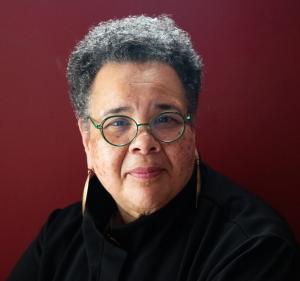
You know the feeling.You have watched your students survive it. You have survived it yourself, many times. It is that shift from knowing to not knowing; from confidence to uncertainty; from expert to novice.Learning so often begins with a jolt of disorientation. It is uncomfortable. It can be exhausting. Over time, with patience and willingness, that discomfort usually gives way to new learning, relearning, even transformation.If you have ever wondered whether your body is part of the learning process, think back to how your body responds when you face something truly new: the queasiness, the sense of being under attack, the way fear can freeze you in place. For many of us, our bodies announce the loss of old truths long before our minds catch up. Disenfranchisement, feeling misplaced, confusion—these are not just ideas. They live in our muscles and our breathing.The disorientation of learning can be severe.I have come to believe that this disorientation is a signal. It tells us that we are entering a space of possibility, wonder, and generativity. That uneasy feeling is a sign that we are exactly where we are supposed to be. Pay attention to the breakthroughs when they come—because they do come.The most sensitive teachers stay in touch with what it feels like to be a learner.Some students greet new learning—or the loss of old knowing—with resistance, refusal, distrust, anger, or deep skepticism. Sympathetic teachers remember what it is like to move from being a competent, confident adult with swagger to feeling like an uncertain beginner, without the vocabulary to join the conversation. Learning can be emotional and unsettling. It can feel grief-stricken, like a small death of who we thought we were.I hold deep respect for adults who decide to learn new things. Those who dare to pursue degrees, learn new software, or tackle baking bread from scratch are risk-takers. I admire risk-takers, dreamers, disruptors.Stepping into classrooms, reading substantial books, participating in weighty discussions, exploring new worldviews, and encountering unfamiliar cultural knowledges—complete with assignments, deadlines, and grades—places learners in terrain marked by misunderstanding, uncertainty, surrender. These are not small shifts. They are life-altering, identity-reforming changes.Many students begin their studies assuming that coursework will affirm what they already know. Instead, they discover that genuine learning asks us to move from knowing to unknowing to new knowing. Few adults are prepared for this destabilizing journey.Deep study challenges what we assumed was settled and agreed upon. That cognitive dissonance is both disruptive and life-giving. Learning can be powerful.We need teachers who recognize how difficult learning is and who sympathize with their students, even as they gently invite them to lean into the formation of a reordered identity.Think about learning to ride a bicycle or surf a wave or drive a car. Fear was high and ability was low. What helped you push through was knowing that others had learned before you. You wobbled. You fell. You practiced—again and again—just to gain a small measure of proficiency. You strengthened your determination. And when the new skills finally took root, your confidence returned. Your swagger came back.Over the years, I learned to notice when my students’ swagger disappeared and disorientation set in. I watched their breathing in class. By mid-semester, their breath usually slowed; their bodies relaxed. I listened to how they used new vocabulary and interacted with unfamiliar concepts. By mid-semester, many of them were incorporating new words into their conversations—sometimes tentatively, sometimes playfully.I became a cheerleader for their attempts, even the unsuccessful ones. I designed assignments that did not assume students already knew what they had come to my class to learn. I created learning activities that acknowledged struggle and disorientation, then coaxed students toward deeper, richer, more flexible knowing. I learned to honor and even celebrate confusion as part of the process.The best teachers cultivate a desire to learn and build spaces for community. New learning is best done not in isolation but together.Do not be alone when confusion gives way to reorientation. Surround yourself—and your students—with people who will not be embarrassed or shamed, who will not humiliate others for not already knowing. The heart is too tender in the midst of learning to bear ridicule or blame.Classrooms need clear rules of engagement that foster community, make room for mistakes, and celebrate the courage it takes to learn.Making space for students to imagine new ways of living through engagement with new knowledges is both daunting and exhilarating. It is risky work. And it is worth it.Happy New Year!
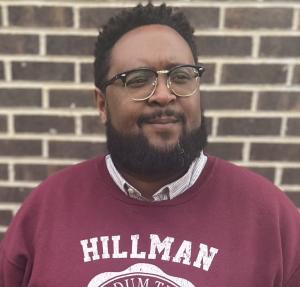
One of the coolest parts of my job at the Wabash Center is curating this blog space with the support of Paul Utterback, our Communications and Digital Media Administrator. Week after week, we have the privilege of sharing reflections from scholars and educators, helping others navigate the rapidly evolving landscape of teaching and the teaching life. As we wrap up one of our biggest years yet (more than 70 new blog posts), I want to take a moment to highlight the pieces that resonated most with readers. It’s no surprise that artificial intelligence—and how educators are responding to its growing presence in the classroom—captured significant attention. Alongside this, our top posts reveal a deep concern with what it means to teach as one’s most authentic self. Questions of identity, belonging, vulnerability, how we show up for our students in our full personhood, remain central to the work of teaching.Gathered here are the top five blogs of 2025:Plagiarism as Gaslighting in the Time of Artificial IntelligenceCommon Questions 2“I love Dr. Parker, but…"Show Your WorkDifficult, but Fun: Reclaiming Joyful Formation in the Age of AI Happy Reading! See you all in 2026!
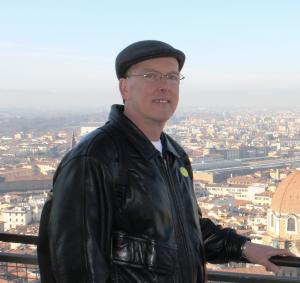
In 2018, I participated in an AAR session on self-disclosure in the classroom. I recall having a heated debate with some colleagues about whether we should reveal elements of our personal lives to students—especially the struggles or darker experiences we might have had—to help students connect their contexts and personal experiences with the material we teach, which are key components of Ignatian pedagogy. I recognize that self-disclosure for the sake of personal promotion is not a good thing. But what about self-revelation that might connect meaningfully with the subject matter or with students’ own experiences? As Parker Palmer writes: “many young people today journey in the darkness as the young always have, and we elders do them a disservice when we withhold the shadowy parts of our lives” (Let Your Life Speak, 18).Several years ago, some colleagues and I engaged in a writing retreat where we explored our vocational calling as teachers, which eventually became a book of essays entitled Why We Do What We Do (2014). The focus of that retreat was to explore whether there was a moment, an event, or an experience that not only led us to pursue college teaching as a vocation, but also shaped the path of our teaching.My own story relayed how my Irish twin brother’s suicide at Christmas affected my faith in God, leaving me wondering where God was in a time of tragedy. It was my theology professor’s willingness to share his own tearful reflections on the meaning of the words of Jesus on the cross—“My God, my God, why have you forsaken me”—that challenged me. He highlighted the notion that the good news of the cross and Resurrection was not that God protects us from harm, but instead is present with us as we create new possibilities out of tragedy. While other students complained he was dismissing their conservative theological beliefs, here is what I wrote:“I responded with tears of my own, not because his words made me sad but because he was the first to speak directly to my experience and to what I was feeling and thinking. The tragedy of my brother’s death was senseless. We never found out why he did it; we could only surmise. But his suicide brought my family together, really together, for the first time in years. Bobby’s death confronted us with the reality of how much we were strangers to one another and how little we knew about each other’s lives. His death rekindled our sense of what it meant to be a family and the love we felt for one another—a love that continues to this day. This was the meaning we were creating together. Was God a part of that? I didn’t know, but it made more sense about God’s role in our lives than anything else… It was then that I knew what my life wanted me to do—to teach, to express the same passion for the ideas, for the people who generate them, and for the students who encounter them.”The text we wrote together became the common reading for the required first-year seminar the following fall. My colleagues sent me notes about how much the students who read my essay resonated with my experiences of loss and grief, of faith and doubt. It gave them a chance to voice their own questions, to see that their struggles—emerging from their contexts and experiences—were not unique. And it opened the door for them to connect meaningfully with the faculty who were teaching them.One of my colleagues wrote:“I just finished reading a stack of journals from my two COR100 sections, in which we read the Why We Docollection. I wanted to let you know that your essay moved a number of my students. I'd say at least a dozen wrote about your piece. Sadly, at this young age, many have already experienced personal tragedies, and your essay really spoke to them. They were stunned by how honest it was, and they felt comforted that some faculty could relate to their experiences (or, in their words, are ‘real people too’). I hope that some of these students will find their way to you someday to ask their own questions. Until then, it's good for them to know that you're here. Thanks for writing the essay you wrote.”Over the years, some of the students did find their way into my classroom. One student wrote:“For some happenstance I found Why We Do What We Do on my shelf tonight and decided to read a few of the essays in there. I found yours and I want to thank you for writing your piece, it brought me to tears. One of the reasons being is that I have been questioning as well for a long time, and I haven't been able to express it to anyone. Your writing made me feel like I wasn't alone in questioning and there's a certain comfort in that.”Another student, who had recently lost her estranged father to a heroin overdose after years of drug addiction, wrote:“The reason I'm telling you all this is because I can barely put in words how much your story impacted me the first, second, and 30th time I've read it. You put into words exactly the struggles I'd been feeling towards my faith, my father's choices, and the pain I've felt for my family as they deal with their own relationships with my dad. I cry whenever I read the interpretation your professor gave you in class that day of Jesus’ words on the cross… I don't even know if I'm giving you enough credit for how much your story has helped me grieve for my dad and process my own relationship with God through this time. There was something so cathartic about realizing the doubts I was having in my faith and in God were not unreasonable or something no one else had felt before.”Self-disclosure of our growth experiences, both good and bad, in the service of teaching and learning lets our students know that we are “real people too” who have struggled and continue to struggle to find answers and meaning. By embracing our own liabilities and limits as well as our strengths, and by connecting them to the subjects we teach, we not only live out our vocation as teachers but contribute to our students’ search to find meaning and wholeness in their lives.

Why do all those immigrants carry flags? Why do they wave Mexican flags? Why do they wave Colombian flags? Why do they wave Honduran flags? The images on television are striking. They are often interpreted as an invasion—an assertion that these people are irreconcilably “other” and will never be accepted.In carrying a flag from another nation, these individuals are calling attention to their identity—whether Mexican-American, Guatemalan-American, Salvadoran-American, Honduran-American, Venezuelan-American, Colombian-American, etc. Justo González notes that many people of Latin American descent live in the dash between their Latin American heritage and their U.S. identity. When they wave these flags, they highlight how their culture has had to survive in a society frequently hostile toward them. Many of these protestors are U.S. citizens, asserting their heritage precisely to those who find that heritage offensive. They are saying: This is where I come from, and I am here. I am also an American. For some, their connection is personal—parents or relatives may have entered the country without documentation. First-generation U.S. citizens may want to honor their culture, their heritage, and even the complicated circumstances by which they came to be here.However, in other protests, they wave the flag of the United States.[i] Jennifer Brown’s 2006 article notes that, in one day, 75,000 marched in Denver, 400,000 in Chicago, and an estimated 300,000 in Los Angeles. Many carried the Star-Spangled Banner. Yet they were still criticized. It is as if no action they take is perceived as acceptable.Here lies the tension in the phrase e pluribus unum—“out of many, one.” The United States is a nation built from many cultures. From the earliest colonies, the land included Europeans of many backgrounds, people of African descent, Indigenous peoples, and immigrant communities. Over time, the pluribus has only grown. Minnesota, for example, has a large population of Scandinavian descent (hence the NFL's “Vikings”). Even within whiteness, some groups have historically been considered “more white” than others.My own heritage is Honduran-American. Typically, Honduran families are Roman Catholic or Pentecostal. They value education, family life, and often dream of starting small businesses. These are among the reasons many voted Republican. Yet the same political forces they aligned with are now deporting their families, friends, and community members. Immigration scrambles the usual political categories.The foreign flags are meaningful. I often recall the image of Tommie Smith and John Carlos on the podium during the 1968 Mexico City Olympic Games, raising their gloved fists in protest of racial oppression in the United States.[ii]Their gesture cost them their careers, yet it declared the beauty, dignity, and power of their identity.Likewise, the Mexican and other Latin American flags being raised in protests today make a statement. Many waving those flags are U.S. citizens. The flags speak to the Latin@ experience in the U.S.—an experience marked by racial profiling, exclusion, and cultural erasure. They are told not to speak Spanish, though the oldest continuously inhabited city in the U.S. is of Spanish origin (St. Augustine, Florida). Their music, food, and customs are ridiculed. They are called slurs. They work jobs many refuse to do. And so, they wave their flags because they refuse to be erased. Notes & Bibliography[i] Brown, Jennifer. “A Roar for Respect.” The Denver Post, 1 May 2006, https://www.denverpost.com/2006/05/01/a-roar-for-respect/. Accessed 13 June 2025. [ii] Burke, Myles. “In History: How Tommie Smith and John Carlos’s Protest at the 1968 Mexico City Olympics Shook the World.” BBC, 15 Oct. 2023, https://www.bbc.com/culture/article/20231011-in-history-how-tommie-smith-and-john-carloss-protest-at-the-1968-mexico-city-olympics-shook-the-world. Accessed 14 June 2025.

The learning curve was steep. Even after six years, I am still learning. In 2019, I went from twenty-plus years as a faculty person who flourished in the graduate school classroom to directing the Wabash Center. Before my faculty membership, I was on the staff of a large church, I worked as a community organizer and professional gardener. Intermittently, I worked as a consultant. While on faculty, I enriched my scholarly portfolio by managing small, medium and large grant projects. Even with all my previous experience, this first attempt at being in the C-suite is a huge challenge. Executive leadership is a new role, a new language, a new responsibility. I can report—without hesitation—that executive leadership is not for the faint of heart. In this digital age, with the ripening of AI, with major advancements in all sectors of the global marketplace, executive leaders have got to ask significant questions that prompt new kinds of discussions with new discussion partners. The changed and changing world demands new approaches. New questions design new approaches. Recently, I hosted a group who attended SOCAP 25. The annual conference meets to discuss the critical relationship between capital, culture, and imagination in institutional transformation. There is an emphasis upon global problem solving and ways to develop new approaches for healing, restoration, more equity, and collective care. The conference was attended by venture capitalists, AI experts, philanthropic agencies, international education projects, medical technology leaders, and Wabash Center participants. The conference began with the proclamation that leaders must be concerned about engaging in the problems that are worth our resources (e.g., capital, time, talents, spirit, etc.). I was reminded that so many college, university and seminary leaders report spending time primarily “putting out fires.” By their report, too often their time is spent “dealing with minutia.” Tasked to navigate meager resources for outdated obligations, outmoded work patterns inside recalcitrant structures. The conversation at the conference reified what I already know to be true - we need the new! We must ask ourselves new questions, have new conversations with new conversation partners! Our future will depend upon our leaders’ abilities to imagine what has never been then construct that reality. What if a key to impactful educational leadership, finding new solutions, new imaginations, new ways of building is by asking new questions? And what if colleagues in other fields are also asking and answering those questions – what new partnerships might be forged? During the three-day conference I took note of and collected the questions the wide variety of speakers said were their north star. In obvious and not so obvious ways, all the presenters divulged the question that their companies and enterprises were pursuing a hopeful future. Sometimes other people’s questions can assist us with our own leadership obligations. Here are the main questions I harvested: What is executive leadership into the future? What are the unmapped and startling roles and responsibilities? What is the preparation and training? What is the prerequisite? What durable skills must leaders possess? Given that most leadership careers will have multiple iterations in the workplace, what experiences prepare people for the many iterations?What are the meta-skills needed for effective leadership?How does one hone the mindsets of: (a) agency, (b) creativity, (c) building (creating), (d) flexibility and adaptability, and (e) managing complexity? What does it mean to manage personal emotional intelligence and nurture emotional intelligence in your team?What AI technologies will need to be added to your repertoire? What AI coaching do you need? What AI do you need to be aware of without learning in-depth? What technologies develop creativity and foster wonder? What about the ancient technologies of story, song, kinships, and relationships?Given that most leaders possess multiple skills advantageous to employers, what does it take to imagine yourself in a variety of kinds of jobs and how will you communicate your skills, knowledge base, and assets to many kinds of employers?What does it mean that we do not know how adults learn? (There is much study of children and adolescents’ ways of learning with little scholarship on how adults learn.) How do you learn? How do you learn to learn better, faster, with more agility? What does it mean to have keen awareness of the ways one learns? Who teaches adults how to learn? What if leaders’ primary task is to ensure new learning by their team? What if success is not transactional, but deeply communal? To which community’s success is your future tied (locally, regionally, nationally, internationally, religiously, spiritually, politically?)As we lead into the future – what do we leave behind and what do we take with us?What will it take to push past our own discomfort, entitlement and fear? What “moon shot,” i.e. bold gesture, will your company take toward the future?In these questions I hear some reassurances. As an executive leader, I have been asking and engaging in some of these questions. Likewise, the list has new questions for me. There are questions on the list that I did not know to ask or pursue. I am glad to have these new questions, and I hope they spark new insights, needed possibilities, and previously unconsidered potentials for and beyond the Wabash Center. For ReflectionReflect upon your habit and practice of asking questions in search of new approaches. Who is your conversation partner for the meta-questions? As you attempt a large-scale shift in the approach of education in your context, to what kind of reality are you trying to shift and shape? What other industry is shaping the same or similar reality? From the above list – select the question that feels “foreign” or “uncomfortable” and take a deep dive into answering it for your context. For presidents, provosts, deans, department heads, and project managers – what would it mean for you to locate and participate in a conversation with experts in fields you are unacquainted with but interested in? How might that experience and exposure to the wider world provide you with new insights, perspectives, and possibilities?

Welcome to the Common Questions, an exciting initiative brought to you by the Wabash Center for Teaching and Learning in Theology and Religion. In this series, we bring together some of the most esteemed scholars and educators in the field to engage with a central, thought-provoking question. The goal is to challenge and inspire. By exploring these questions, we hope to create a dynamic platform for scholarly dialogue, illuminate complexities in education, and enhance our understanding of the transformative power of teaching and learning in these vital disciplines. Featuring a diverse range of perspectives, this effort is a means of expanding the borders of academic rigor with profound spiritual and philosophical inquiry. This time, we asked… “Where is the most foreign place you have visited? How might this experience with foreignness inform/influence your teaching?”Gathered here are responses from:Eric C. Smith, Iliff School of TheologyKatherine Turpin, Iliff School of TheologySharon Higginbothan, Chatham UniversityShatavia Wynn, Rhodes CollegeYii-Jan Lin, Yale Divinity School If you are interested in sharing you response to this prompt or future Common Questions, please reach out to our blogs editor, Donald E. Quist at quistd@wabash.edu.
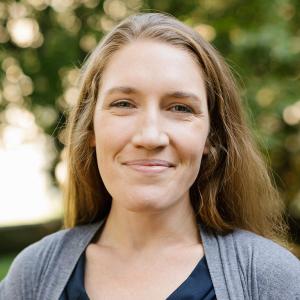
The Bible and Ethics is an emotional class for me to teach, and it is often an emotional class for my students to take. In most other classes that I teach, I try to put brackets around our conversations, like bumpers for novice bowlers. I encourage students to stay in the text of the Bible or in the world of its composition: “Okay, but where to you find that idea in the passage you just read?” I’ll ask repeatedly. Or: “That sounds like a pretty modern idea. Can you find evidence in the text that our ancient authors would have understood that concept?”But in my class The Bible and Ethics the conversation zigs and zags between ancient worlds and more modern ones. We’ll spend an entire class session on how seventeenth-century American Puritans applied the biblical story of Amalek[1] to their own experiences. Or how the 1995 Disney film Pocahontas might shed light on the Bible’s account of Rahab.[2] The Bible and Ethics class is about what biblical laws and stories meant in their ancient contexts. But it’s also about what these passages do: both the actions they have inspired in others as well as the – sometimes predictable, sometimes surprising – attitudes they generate within us. In that respect, this class often gets personal, even emotional. We shudder together at Cotton Mather’s 1689 sermon[3]that urges his listeners to beat Native Americans “small as the Dust,” just like the Israelites annihilated the Amalekites. Students prickle at Lori Rowlett’s suggestion that Rahab can be read as a colonizer’s dream girl,[4] all too eager to capitulate to invaders. “I talked to my mom about this story” – one student told me after class – “and we both agreed that Rahab is brave. Besides, what other choice did she have?” She flushed a little. I did too, weighing whether to simply affirm this student’s complaint or to rearticulate the Rahab-as-colonial-fantasy argument. In the end, I tried to do both.In Part 1 of this series,[5] I explained the invitation I issue in this class for students to read biblical texts through the eyes of marginal characters. I define marginal characters as individuals that experience violence or are otherwise silenced; or those who are represented as “other” by virtue of their perceived ethnic difference, for example. During the course of the semester, we read examples[6] of scholars – ancient and modern; religiously devout and not – who have done this kind of work. I then give students the opportunity to try their hand at this kind of biblical rewriting. The idea, again, is to expand our consideration of who is human and who deserves our attention. I tell my students that, at its heart, this is an exercise all about paying attention: both to the surprising details the text itself may yield about this overlooked character and also to what you experience in the act of rewriting this account. Paying attention both to the Bible and to your own of experience retelling its story, I tell them, will offer you crucial information.Here are the directions I give students for this assignment: Select a story we have discussed in our class. Within that story, choose a character that sits on the margins of this story, by dint of the violence inflicted upon them or because of their perceived outsider status.Each rewriting should be between 400-500 words and should consciously inhabit the perspective or direct its narrative gaze on a marginalized character. (This doesn’t mean you have to adopt that character’s first-person perspective although you may choose to do that).Each rewriting should be a contextually-conscious and detailed reworking of the biblical text it is based on. That means that it needs to be footnoted, clearly deploying our secondary reading (reading 3-4 references). It should also directly reference the biblical story (4-5 references). Both sets of footnotes should explain how the specific details of the assigned reading have informed your creative reimagining. At the end of the document you must include a brief (300 word) reflection that responds to the following questions: (1) Why did you choose this character? (2) What emotions or features of this character’s experience were you attempting to convey? (3) What made this assignment challenging? (4) What was your major take-away from this assignment? If it changed the way you interpret the passage you selected, explain that. If it did not, explain that too.This assignment tends to bring up big and varied feelings in students. Students often express frustration with the absence of biblical content to go on and the demands this assignment makes on their creativity. Some struggle to present their chosen characters as intelligible. Others have told me that imagining the lives and losses of these figures have made them feel a spectrum of defensiveness, anger, liberation, and sadness. This assignment often reveals something to the student about how they have learned to read the Bible. It showcases the power of both the biblical story and their received lens for interpreting it. At its best, this assignment also gives them sense of how it might feel to read otherwise. Notes & Bibliography[1] https://www.sefaria.org/Exodus.17.10?lang=en&aliyot=0[2] https://www.sefaria.org/Joshua.2?lang=en[3] https://www.degruyter.com/document/doi/10.9783/9780812204896.53/html[4] https://www.bloomsbury.com/us/culture-entertainment-and-the-bible-9780567228789/[5][6] https://jibs.hcommons.org/2022/11/02/4-2-brownsmith-call-me-by-your-name/